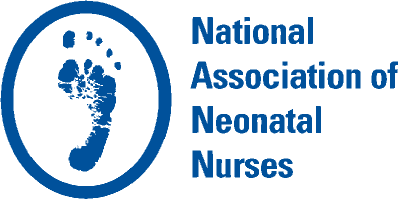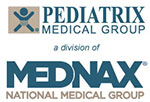NANNP Corner
Collective Responsibility for Training New Graduate NNPs

Elizabeth Welch-Carre, EdD MS APRN NNP-BC
I think we have all heard the phrase, “the world of neonatal nurse practitioners (NNPs) is so small that an NNP can’t whisper in California without the NNPs in New York hearing it.” And frankly, there is some truth to that since NNPs are one of the smaller specialty groups among NPs (Staebler & Bissinger, 2017). I try to “listen” to what is going on in the market because it often matters. Recently I have heard from individuals, one being a recruiter, that new graduate NNPs are being let go in the first few months of their new career because they are unable to manage large numbers of patients—patient loads as great as 14–16. The unfortunate outcome of this is that the hiring unit is down a staff member. Furthermore, the new graduate NNP who has lost his or her job then has difficulty finding another job because they “left their first job so early,” which contributes to the ongoing shortage of NNPs (Linkous, 2019). But, perhaps even more importantly, if a new graduated NNP is expected to carry patient loads greater than 10 within the first few months of their new career, are they being properly oriented and supported during their professional transition as an advanced practice registered nurse (APRN)? What is our professional and collective responsibility to ensure that new NNPs have the tools they need to be successful? One option might be postgraduate nurse practitioner residency or fellowship programs.
In 2007, the first NP residency was launched at a federally qualified health center (FQHC) in Connecticut. The program was developed to foster confidence and competency in new graduate family NPs. This residency program has expanded to other FQHC facilities and now includes some specialty areas beyond family NPs (Flinter & Hart, 2017).
In 2010, the Institute of Medicine (IOM) published a report called The Future of Nursing: Leading Change, Advancing Health (IOM, 2011). The report made several recommendations to support the advancement of the nursing profession within a complex healthcare environment. Recommendation three stated that nurse and APRN residency programs were necessary to support transition to practice. This recommendation was reiterated in 2016 (Committee for Assessing Progress on Implementing the Recommendations of the Institute of Medicine Report The Future of Nursing: Leading Change, Advancing Health, 2016).
A scan of public information found Web-based information on 68 APRN residency/fellowship programs around the country. Thirty-eight percent of the programs were focused on primary care.;however, 13% focused on emergency/trauma and 12% focused on acute/critical care. Ninety-five percent of the programs were 12 months or longer in length (Martsolf, Nguyen, Freund, & Poghosyn, 2017).
Children’s Hospital of Colorado (CHCO) received the first NNP postgraduate fellowship program American Nurse Credentialing Center accreditation with distinction in August of 2019. This fellowship program is the 12th NP program to receive accreditation since Emory’s critical care nurse practitioner/physician assistant residency program in 2015 (Woodruff Health Sciences Center, 2015).
According to Linda McCarney, the lead NNP education coordinator at CHCO, it was her observations of new graduate NNPs transitioning into practice in a busy level IV neonatal intensive care unit (NICU) that motivated her to create a residency program: “I saw the potential for increased support during the transition from graduate education to professional NNP” (McCarney, 2019). In 2007, NNP full-time equivalent (FTE) hours were allocated toward building an NNP new graduate residency (NGNNP) with support from hospital leadership. A literature review was conducted to determine if there were NP residency programs, core competencies used for NP residency programs, and an appropriate framework for the program. The core competencies were based on the National Organization of Nurse Practitioner Faculties’ (NONPF) Domains and Core Competencies of Nurse Practitioner Practice, the National Association of Neonatal Nurses’ (NANN) Educational Standards and Curriculum Guidelines for Neonatal Nurse Practitioners Programs, and the NONPF’s Acute Care Nurse Practitioner Competencies. The framework for the program was Benner’s “novice to expert” model.
The NGNNP residency program was launched in 2009. At that time the primary focus was to prevent NGNNPs from feeling overwhelmed by their new role in the context of busy level III and IV NICUs. Therefore, the NGNNP worked with an experienced NNP to comanage a group of patients. For the first 16 weeks, the NGNNP did not count in the staffing numbers. NGNNPs also were provided with didactic to deepen their knowledge on important topics.
Over many years modifications were made to the program based on feedback from staff, preceptors, preceptees, and leadership. One change was the creation of the neonatal specialist intern role. This allowed NGNNPs to start working as soon as they passed the National Certification Corporation exam but before they were credentialed. While in this role, all orders by the intern are cosigned by an NNP with privileges.
Per statements from Ms. McCarney, by 2015 it became clear that NGNNPs deserved an interval increase in daily caseload and that NGNNPs should not be responsible for more than 10 patients in their first year of practice (McCarney, 2019). The decision to limit the caseload of NGNNPs aligned better with position statement #3058 from the NANN board and NANNP council (NANN & NANNP, 2013):
- Initial maximum caseload of six-patients for a novice NNP
- Up to a maximum 10-patient caseload for advanced beginner to expert NNPs, when activity or acuity is high
- Greater than 10-patient caseloads may be managed by proficient and expert NNPs when the activity or acuity is decreased or when providing oversight of other providers (National Association of Neonatal Nurses & National Association of Neonatal Nurse Practitioners, 2013, pp. 7-8).
The NGNNP residency program was revised and renamed the NGNNP fellowship program in 2016/2017. Some of the changes made included
- engagement and support from upper CHCO leadership
- a cohort approach to hiring
- extended one-on-one precepted clinical experience
- expanded, consistent classroom content
- high-fidelity simulation lab experiences
- preceptor training and support
- NNP fellow completion of an evidence-based practice (EBP) project with mentorship
- multipoint program evaluations from stakeholders.
Because the program has moved to a “cohort” approach, didactic is delivered in a more formalized and consistent manner. NGNNPs continue to be limited in their patient load. The inaugural cohort graduated in 2018.
Are postgraduate NP residencies or fellowships the wave of the future? A study in 2004 reported that 87% of NPs responded that they would have benefited from a residency program (N=562). In this same study, only 10% of NPs responded that they felt well prepared to transition to their new role after graduation (Hart & Macnee, 2007). There are currently approximately 12 NP fellowship/residency programs that are accredited by the ANCC. There are approximately another 120 primary and specialty care programs and 6 are accredited by the National Nurse Practitioner Residency and Fellowship Training Consortium (National Nurse Practitioner Residency and Fellowship Training Consortium, 2018). Furthermore, there are other postgraduate NP programs that have not been accredited, yet they still support new graduate NPs in their transition to practice. The NGNNP fellowship program is a great recruitment tool. According to Ms. McCarney, CHCO has no shortage of applicants for the NGNNP fellowship. But, CHCO lacks the bandwidth to hire more than eight NGNNPs per year. I ask again, what is our professional and collective responsibility to ensure that new NNPs have the tools they need to be successful? We need to start that collective discussion.
References
Committee for Assessing Progress on Implementing the Recommendations of the Institute of Medicine Report The Future of Nursing: Leading Change, Advancing Health. (2016). Assessing progress of the institute of medicine report the future of nursing. S. H. Altman, A. S. Butler, & L. Shern (Eds.). Washington, DC: National Academies Press (US).
Flinter, M., & Hart, A. (2017). Thematic elements of the postgraduate NP residency year and transition to the primary care provider role in the federally qualified health center. Journal of Education and Practice, 7(1), 95-106.
Hart, A., & Macnee, C. (2007). How well are nurse practitioners prepared for practice: Results of 2004 questionnaire study. The Journal of Nurse Practitioners, 19(1), 35-42.
Institute of Medicine. (2011). The future of nursing: Leading change, advancing health. Washington, DC: National Academies Press.
Martsolf, G. R., Nguyen, P., Freund, D., & Poghosyn, L. (2017). What we know about postgraduate nurse practitioner residency and fellowship programs. The Journal of Nurse Practitioners, 13(7), 482-487.
National Association of Neonatal Nurses & National Association of Neonatal Nurse Practitioners. (2013). Neonatal nurse practitioner workforce position statement #3058. Retrieved from http://nann.org/uploads/About/PositionPDFS/NNP_Workforce_Position_Statement_01.22.13_FINAL.pdf
National Nurse Practitioner Residency and Fellowship Training Consortium. (2018). Residency and fellowship training consortium. Retrieved https://www.nppostgradtraining.com/Portals/0/Documents/NNPRFTC_AR2018_F120718_web.pdf?ver=2018-12-21-114141-473
Staebler, S., & Bissinger, R. (2017). 2016 neonatal nurse practitioner workforce survey: Report of findings. Advances in Neonatal Care, 17(5), 331-336.
Woodruff Health Sciences Center. (2105). Emory's critical care NP/PA residency program accredited by ANCC. Retrieved from http://news.emory.edu/stories/2015/02/critical_care_np_pa_residency_prog_accredited/
Welch-Carre, E. (Interviewer) & Linkous, K. (Interviewee). (2019). New graduate NNPs.
Welch-Carre, E. (Interviewer) & McCarney, L. (2019). NNP ANCC accreditation.
Our Sponsor


